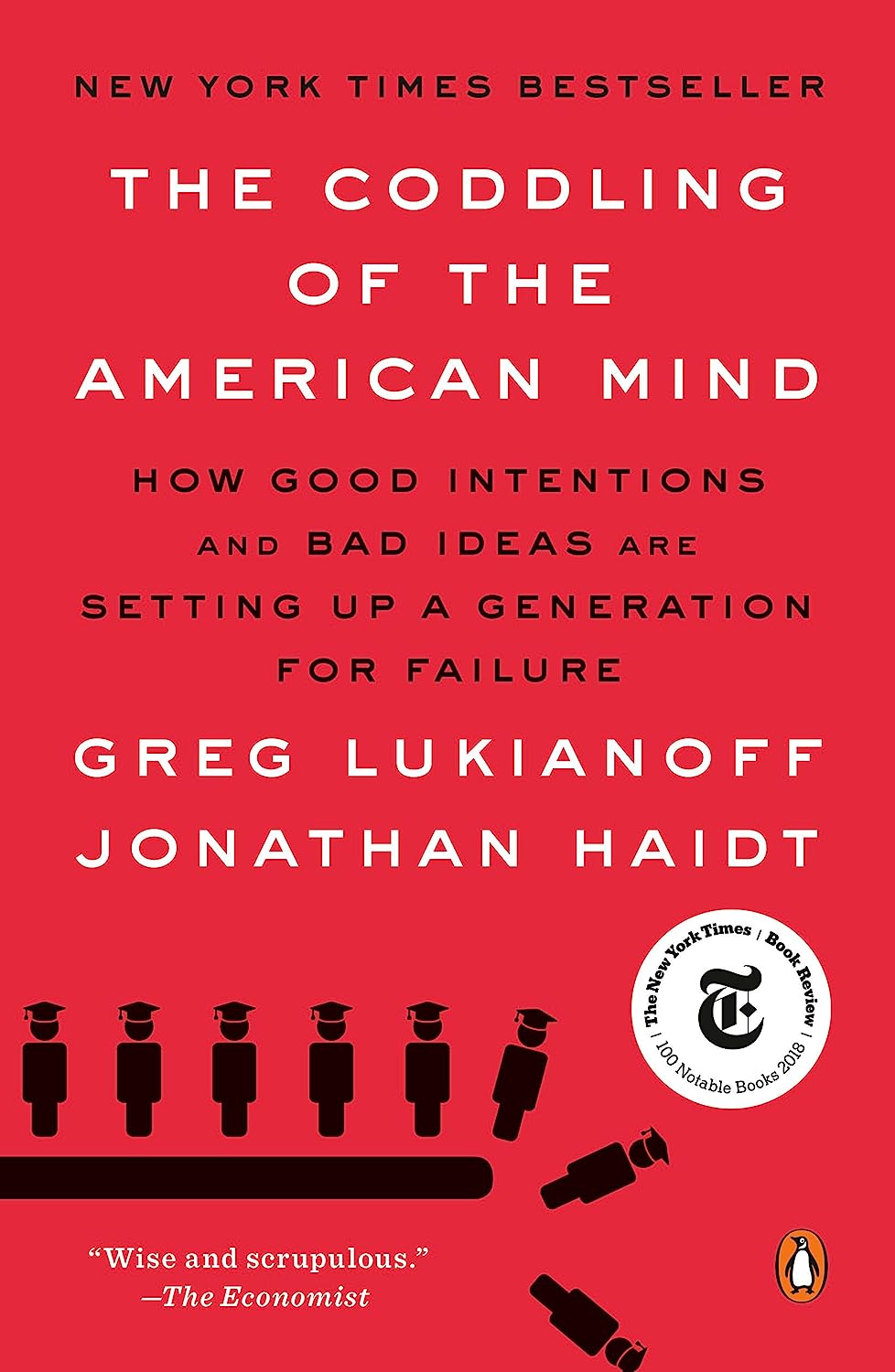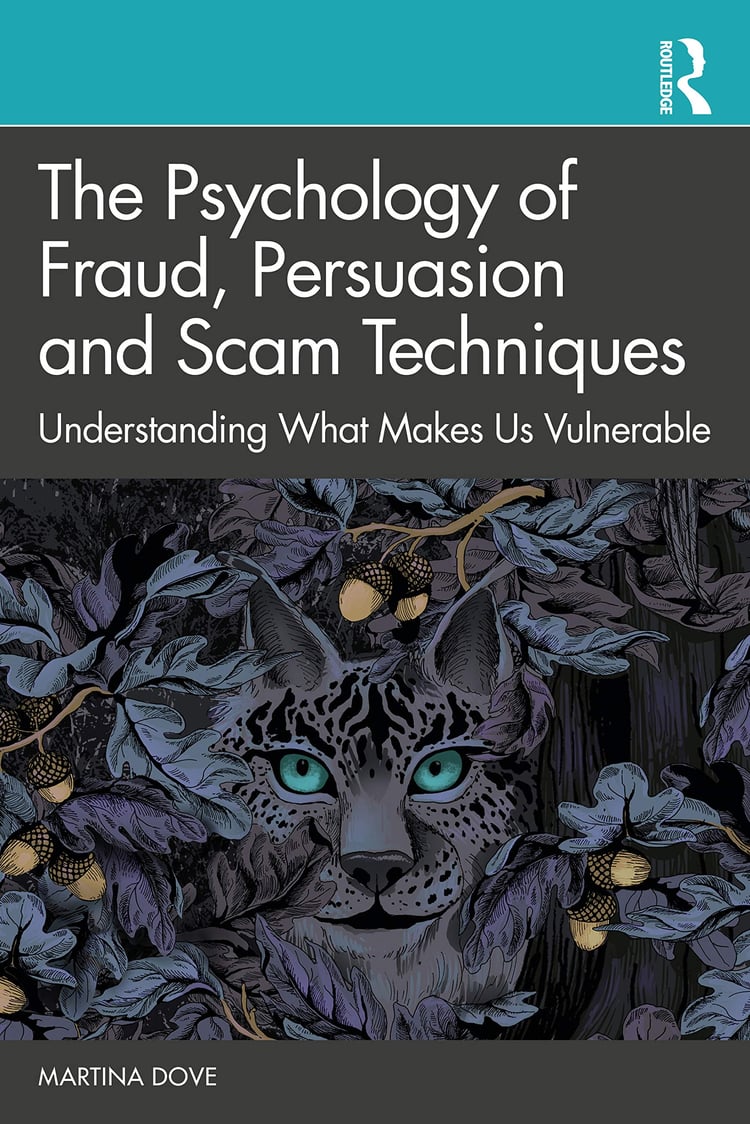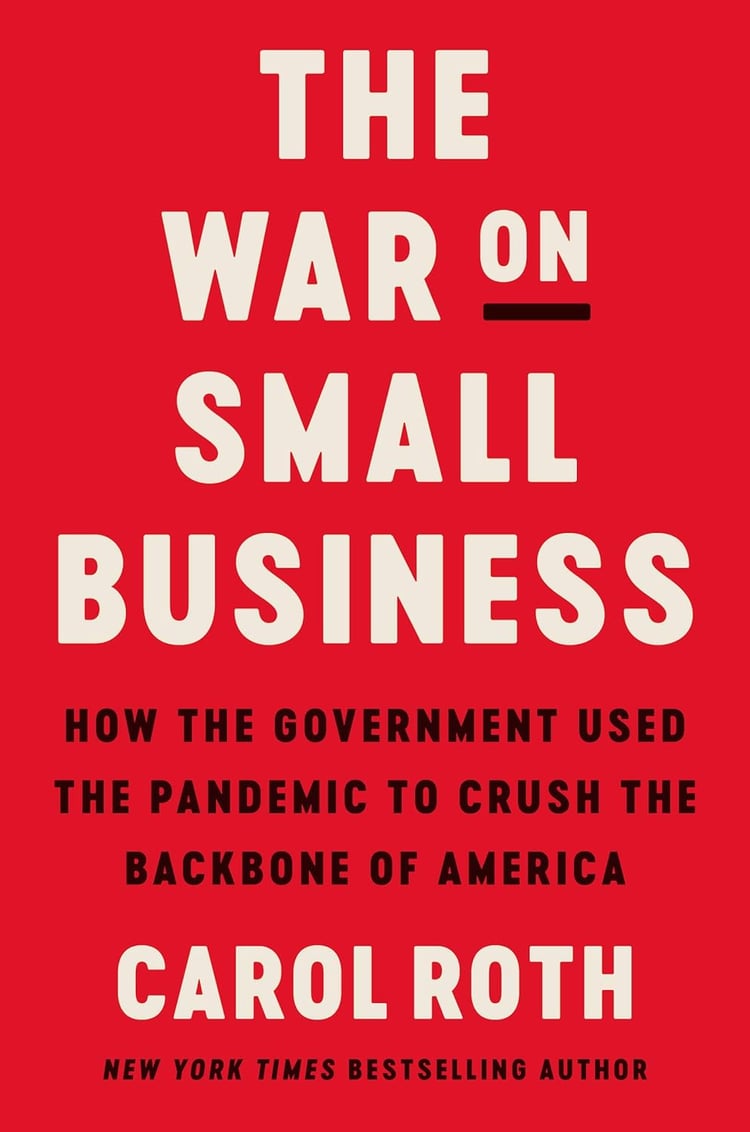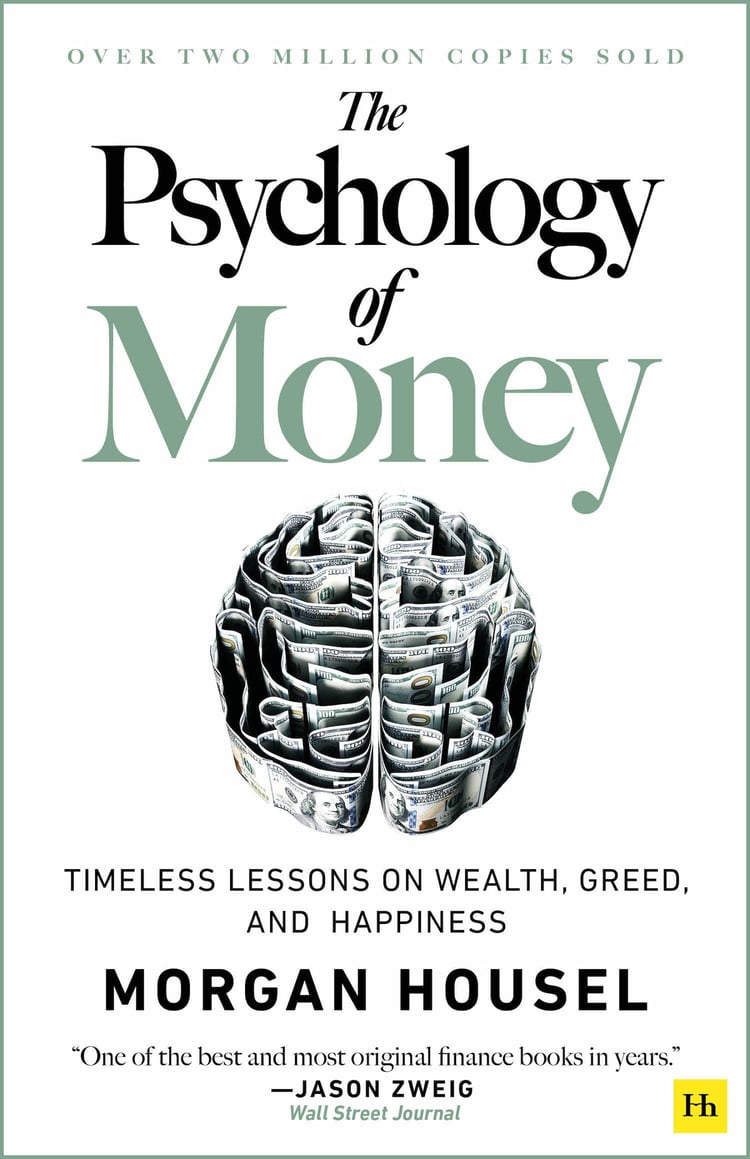

The Coddling of the American Mind: How Good Intentions and Bad Ideas Are Setting Up a Generation for Failure
by Greg Lukianoff (Author), Jonathan Haidt (Author)
Something is going wrong on many college campuses in the last few years. Rates of anxiety, depression, and suicide are rising. Speakers are shouted down. Students and professors say they are walking on eggshells and afraid to speak honestly. How did this happen?
First Amendment expert Greg Lukianoff and social psychologist Jonathan Haidt show how the new problems on campus have their origins in three terrible ideas that have become increasingly woven into American childhood and education: what doesn’t kill you makes you weaker; always trust your feelings; and life is a battle between good people and evil people. These three Great Untruths are incompatible with basic psychological principles, as well as ancient wisdom from many cultures. They interfere with healthy development. Anyone who embraces these untruths—and the resulting culture of safetyism—is less likely to become an autonomous adult able to navigate the bumpy road of life.
Lukianoff and Haidt investigate the many social trends that have intersected to produce these untruths. They situate the conflicts on campus in the context of America’s rapidly rising political polarization, including a rise in hate crimes and off-campus provocation. They explore changes in childhood including the rise of fearful parenting, the decline of unsupervised play, and the new world of social media that has engulfed teenagers in the last decade.
This is a book for anyone who is confused by what is happening on college campuses today, or has children, or is concerned about the growing inability of Americans to live, work, and cooperate across party lines.
Review
“A disturbing and comprehensive analysis of recent campus trends . . . Lukianoff and Haidt notice something unprecedented and frightening . . . The consequences of a generation unable or disinclined to engage with ideas that make them uncomfortable are dire for society, and open the door—accessible from both the left and the right—to various forms of authoritarianism.” —Thomas Chatterton Williams, The New York Times Book Review (cover review and Editors’ Choice selection)
"So how do you create ‘wiser kids’? Get them off their screens. Argue with them. Get them out of their narrow worlds of family, school and university. Boot them out for a challenging Gap year. It all makes perfect sense . . . the cure seems a glorious revelation." —Philip Delves Broughton, Evening Standard
“The authors, both of whom are liberal academics—almost a tautology on today’s campuses—do a great job of showing how ‘safetyism’ is cramping young minds. Students are treated like candles, which can be extinguished by a puff of wind. The goal of a Socratic education should be to turn them into fires, which thrive on the wind. Instead, they are sheltered from anything that could cause offence . . . Their advice is sound. Their book is excellent. Liberal parents, in particular, should read it.”— Edward Luce, Financial Times
“Their distinctive contribution to the higher-education debate is to meet safetyism on its own, psychological turf . . . Lukianoff and Haidt tell us that safetyism undermines the freedom of inquiry and speech that are indispensable to universities.” —Jonathan Marks, Commentary
“The remedies the book outlines should be considered on college campuses, among parents of current and future students, and by anyone longing for a more sane society.” —Pittsburgh Post-Gazette
“Perhaps the strongest argument in Haidt and Lukianoff’s favour, though, is this: if you see this issue as being about little more than a few sanctimonious teenagers throwing hissy fits on campus then, yes, it is probably receiving too much attention. But if you accept their premise, that it’s really a story about mental wellbeing and emotional fragility, about a generation acting out because it has been set up to fail by bad parenting and poorly designed institutions, then their message is an urgent one. And it is one that resonates well beyond dusty libraries and manicured quadrangles, into all of our lives.” —Josh Glancy, The Sunday Times (UK)
“Jonathan Haidt and Greg Lukianoff’s new book, The Coddling of the American Mind: How Good Intentions and Bad Ideas Are Setting Up a Generation for Failure, persuasively unpacks the causes of the current predicament on campus – which they link to wider parenting, cultural and political trends . . . The Coddling of the American Mind is both an enlightening but disquieting read. We have a lot of challenges in front of us.” —Quillette, Matthew Lesh
"The authors remind us of some of the campus happenings that, since 2015, have afrighted old liberals like me . . . In the end [despite some objections] I agreed with Messrs Lukianoff and Haidt that protecting kids has gone too far, and that some campus behaviour is absurd and worrying." —David Aaronovitch, The Times (UK)
"The speed with which campus life has changed for the worse is one of the most important points made by Greg Lukianoff and Jonathan Haidt in this important if disturbing book." —Niall Ferguson, Sunday Times
Categories : Popular Culture, Mental Illness, Social Psychology & Interactions
ASIN : B076NVFT5P
Publisher : Penguin Books (September 4, 2018)
Publication date : September 4, 2018
Language : English
File : EPUB, 1.10 MB
Text-to-Speech : Enabled
Screen Reader : Supported
Print length : 352 pages


















